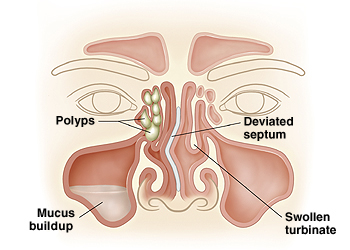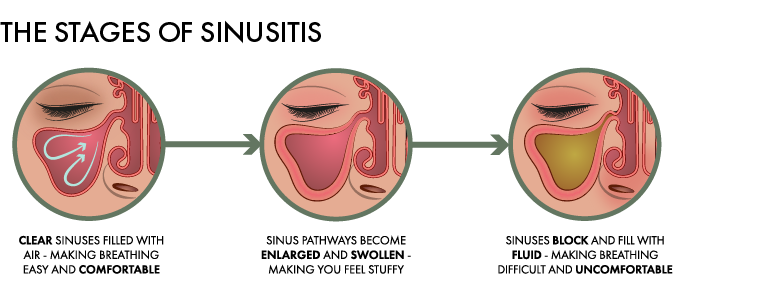
Acute Pharyngitis (inflammation and swelling of the soft palate) are defined as the rapid onset of severe sore throat with or without pharyngeal irritation (without or with exudates) or mucus buildup. Mucus accumulation is considered as a marker of chronic and infectious sinusitis. Exudate is less common and may not indicate acute pharyngitis, depending on mucus consistency and degree.
Chronic infection with Streptococcus is one of the most common causes of chronic pharyngitis. However, it is also possible for viral, fungal, bacterial, or parasitic infections to cause sore throats and mucous production in the nose. An absence of cough, sore throat, pharyngeal congestion, nasal discharge, and/or nasal drainage distinguish viral from bacterial etiologies. Viral pharyngitis is usually a self-limiting condition with resolution of the symptoms within 2 weeks.
Bacterial or fungal infections of the tonsillar crypts are the other typical causes of acute Pharyngitis. Common symptoms of bacterial pharyngitis include white to yellowish throat, sore throat with the cough. Fungal pharyngitis produces red swollen nodules or coryza. Bacterial or fungal pharyngitis have different etiology (organisms causing the disease). Some of the bacteria causing these conditions are Staphylococcus aureus, Streptococcus pyogenes, Lactobacillus acidophilus, and Haemophilus.
Sinus infections are another frequent cause of acute Pharyngitis. Most often, a patient with sinusitis will suffer from sinusitis-like symptoms (stuffy nose, bad breath, sore throat with the cough). Sinusitis patients are also prone to acute Pharyngitis. Sinusitis-like symptoms like white or yellow mucus, fever, swollen lymph nodes, tender chest, and sore throat may be mistaken for acute Pharyngitis. In addition, a fever is common with some patients with sinusitis-like symptoms, but the fever has never been proven to precede sinusitis and may in fact be caused by acute Pharyngitis.
Some patients with chronic sinusitis may also be predisposed to viral pharyngitis. Patients with chronic sinusitis have no symptoms of viral infection or show only mild symptoms. Viral pharyngitis can be confused with sinusitis and can be treated in the same way. The best way to tell the difference between sinusitis and strep throat is the absence of fever. The best way to tell the difference between acute and chronic sinusitis is to have no fever.
Many viruses can cause symptoms that mimic those of chronic sinus infections, such as fever, chills, and pain. However, sinus infections are not always caused by viral infections. Virus-like cough is a common symptom of acute sinusitis and is very similar to the cough caused by the common cold.
However, symptoms such as difficulty swallowing, swollen lymph nodes, and neck pain usually indicate chronic sinusitis

The best way to determine if sinusitis is causing a patient's symptoms, acute or chronic, is to see a doctor for a correct diagnosis. Your doctor may do a nasal and throat culture and endoscopy to rule out infections such as Streptococcus pneumoniae, strep throat, and viral infections.
People who are prone to developing chronic sinusitis should avoid certain foods, especially if they have chronic sinusitis. Foods high in sugar should be avoided. Some people are more likely to develop chronic sinusitis than others. But chronic sinusitis has a higher risk of recurrence if left untreated.
For acute sinusitis, the patient with acute sinusitis should take oral antihistamines as directed by the doctor. If they don't control symptoms, your doctor may prescribe a corticosteroid cream to relieve symptoms. In most cases, an antibiotic mouthwash containing chlorhexidine gluconate is sufficient to treat symptoms. Antibiotics are not always necessary in the treatment of strep throat.
Some people have problems with chronic sinusitis, even though they do not have symptoms. The best way to check if chronic sinusitis is the cause of the symptoms is to visit the doctor. A doctor may use a nasal culture to test for the presence of bacteria, but this is not an accurate indicator of the presence of chronic sinusitis.
If you think that you are suffering from chronic sinusitis, it is best to go to the doctor right away to diagnose the problem. The early diagnosis will prevent complications and allow you to get treatment in time to keep you feeling better. Remember to eat healthily and stay away from bacteria-filled foods to avoid recurring problems with sinusitis.
A doctor can prescribe various medications and recommend other therapies to treat sinus problems. If you have any concerns, talk with your doctor or see a specialist about them.
